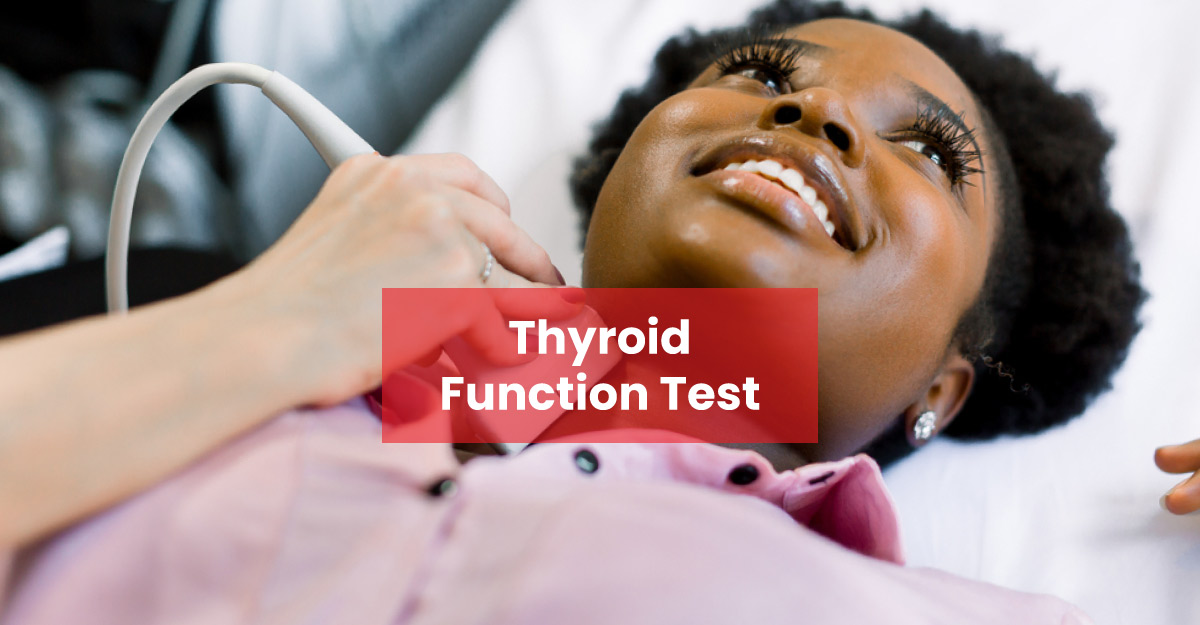Types of thyroid function test
The thyroid function test measures the levels of three different hormones:
- Thyroxine (T4)
- Triiodothyronine (T3)
- Thyroid-stimulating hormone (TSH)
Triiodothyronine (T3)
The total T3 test measures how much thyroxine exists and its conversion into triiodothyronine (T3). The amount of T3 produced by the body is crucial for many bodily functions, including muscle contraction, heart rate, and metabolism.
Thyroxine (T4)
T4 is the form of thyroid hormone circulating in the blood. The thyroxine (T4) test measures the amount of thyroxine in your blood. It determines a thyroid problem and checks for hypothyroidism.
Thyroid-stimulating hormone (TSH)
The TSH test measures how much thyroid hormone is present in the body. Hypothyroidism and subclinical hypothyroidism occur when the thyroid gland does not produce enough thyroid hormones.
Related: Kidney Function Test Explained: What You Need To Know
How To Prepare For The Test?
If your doctor orders a thyroid function test, you may wonder how to prepare. The test requires no special preparation.
You may need to fast for several hours before other blood tests if your health care provider orders them. If there are any special instructions you should follow, your health care provider will let you know.
Diagnosis using the results from this test
The results can help to identify whether a person has hypothyroidism or hyperthyroidism.
- Low levels of T3 and T4 may show hypothyroidism.
- High levels of T3 and T4characterize hyperthyroidism.
- The imbalance of T3 and T4 hormones lead to Graves’ disease.
Related: What Is Liver Function Test And Its Importance To Health
Managing Thyroid Function with the Best Diet & Supplements
The best way to manage your thyroid function with diet and supplements is through eating right, getting enough sleep, exercising daily, and taking thyroid-friendly supplements.
Eating Right: The first step in managing your thyroid with a diet is to eat foods rich in iodine—which helps keep the thyroid healthy and functioning well.
Foods rich in iodine include Fish (salmon, tuna, halibut), shellfish (lobster, crab), seafood (shrimp, calamari), Eggs, and Milk products.
Related: Spirometry Test: The Complete Guide For Better Lungs
Getting enough sleep: It is vital to get enough sleep so that your body has time to rest while it repairs itself from all the work it does during the day.
If you are having trouble sleeping at night, try these tips:
a) Make sure your room is dark and quiet (no electronics)
b) Avoid caffeine after noon
c) Do not drink alcohol before bedtime
Exercising daily: keeps your metabolism healthy by preventing thyroxine and triiodothyronine overproduction and underproduction.
Taking thyroid-friendly supplements: You can also take supplements such as selenium sulfide (Se-Sulphide), which helps to regulate thyroid function.
We recommend taking this supplement daily as part of a balanced diet, as we do not recommend dietary supplements for people with heart disease or diabetes.
Related: What Is Lipid Profile Test And What Are Its Uses








No Comments